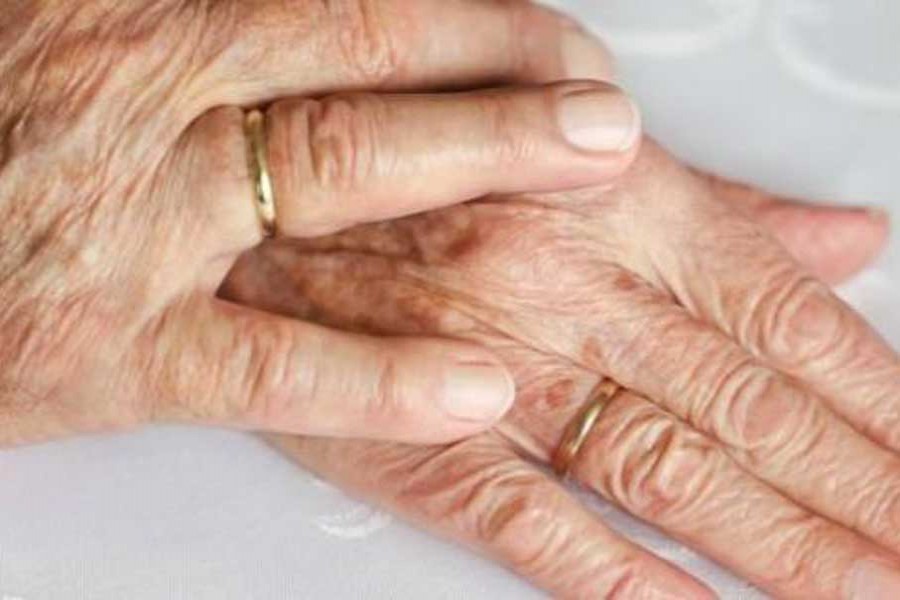As life expectancy increases in Bangladesh, concern also raises on how to organise and provide personal and healthcare services for them. Rapid urbanisation, high-rise apartment living, greater formal sector labour force participation by both spouses, disintegration of joint families, and loneliness (as most adult children work full-time, or they go and settle overseas) complicate the caregiving options and availability. Policy and structural deficiency make the situation worse as the country's policymakers are yet to study and understand the huge needs the aging population will create in the next few decades and they have little or no clue about finding possible ways to meet these needs.
The aged and the people with disability need long-term care (LTC) services. LTC involves a variety of services intended to meet an individual's health or personal care needs usually for a long period of time. These services assist people to live self-reliantly and as safely as possible when they themselves are not able to perform everyday activities. LTC is provided in diverse places by a diverse group of caregivers, depending on the individual's needs. Historically, most LTC is provided at home by family members, relatives, and friends and by domestic helpers in Bangladesh. However, it can also be given in an institution such as a nursing home (commonly known as old homes in Bangladesh) or in the community, for example, in adult daycare centres that are yet to establish and operate in Bangladesh.
LTC service provides help with everyday activities -commonly called "activities of daily living". LTC also includes services such as arranging for delivery of cooked meals, attending adult day care, and accessing transportation services. These services may be provided free or for a fee depending on the existing insurance company's benefit options and availability, premium payment scheme or affordability, or the government-provided or subsidised systems once the Bangladesh government decides to develop and offer suitable models and means to help the elderly and the people with disability.
People often need LTC when they are not old but develop a serious, ongoing health condition or disability. Thus the need for LTC can arise suddenly, such as after suffering from a stroke, heart attack, or injury. Most often, though, the LTC need develops gradually, as people get older and frailer or their ongoing illness or disability gets worse over time. A disability is any condition of the body or mind that restricts the individual from doing certain activities. Disabilities may affect a person's vision, movement, thinking, remembering, learning, communicating, hearing, mental health, and social relationships.
It is not easy to envisage how much or what type of LTC an individual may need. Several risk factors have been identified that increase LTC needs: 1) as people get older, the need increases, 2) women are at higher risk than men because they often live longer, 3) single people including widows and widowers need care from external care providers, 4) poor diet and lack of exercise increase a person's vulnerability, 5) health and family history also affect risk.
Some of these identified risk factors are already common or will be more common among Bangladeshi people as they will be living longer, women almost always marry men who are several years older than them meaning they will have a longer widowhood, and people in general particularly the urban people have poor dietary habits and almost no scope for doing physical exercise. The rate of divorce or separation is on the rise, more of older people are living alone as for better living, education, and wages, and a lot of younger age people are leaving the country. All of these suggest that LTC will be a great social necessity in Bangladesh.
Bangladesh needs to explore possible ways to meet the growing needs of LTC and one alternative to long-term care in old homes is arranging for home-based care. Home-based LTC includes health, personal, and support services and these help people stay at home independently for as long as possible. Most LTC is still actually provided in homes in Bangladesh. These home-based services involve personal care, such as help with bathing, dressing, taking medications, and supervision. Unpaid family members, spouses, friends, and neighbors provide most of this type of care in Bangladeshi society. Home-based LTC services can also be provided by paid caregivers, including informal caregivers, and healthcare professionals such as nurses, home health care aides, therapists, and homemakers, who are hired through home health care agencies in other countries. These services include home health care, meal services, friendly visitor/companion services, and emergency response systems. Bangladesh is yet to develop, trial, and offer home health care agencies. Entrepreneurs in Bangladesh can come forward with business models.
However, gradually, support from family and friends may not be adequate. People might have to move to a full residential facility- commonly called old homes that provides some of these needed services. Most old homes in Bangladesh provide only housing and housekeeping, but a few also provide personal care and medical services. Facilities in Bangladesh are yet to offer special programmes for people with alzheimer's and dementia. Rehabilitation services including physical, occupational, and speech therapy are also not available at most of the current Bangladeshi-styled old homes.
The rapid growth of the aging population size in Bangladesh over the next few decades will require extensive efforts from all quarters to carefully look into their LTC needs and find ways to meet them.
Dr. Hasnat M Alamgir is Professor and Chair of Public Health at IUBAT (International University of Business Agriculture and Technology), Dhaka. [email protected]


